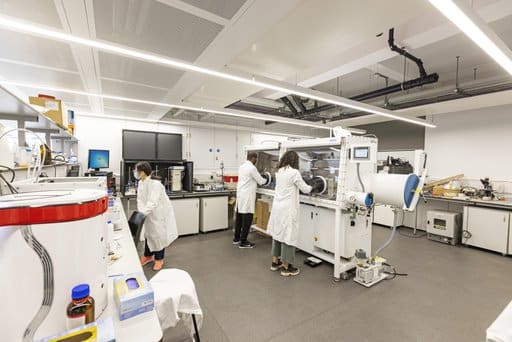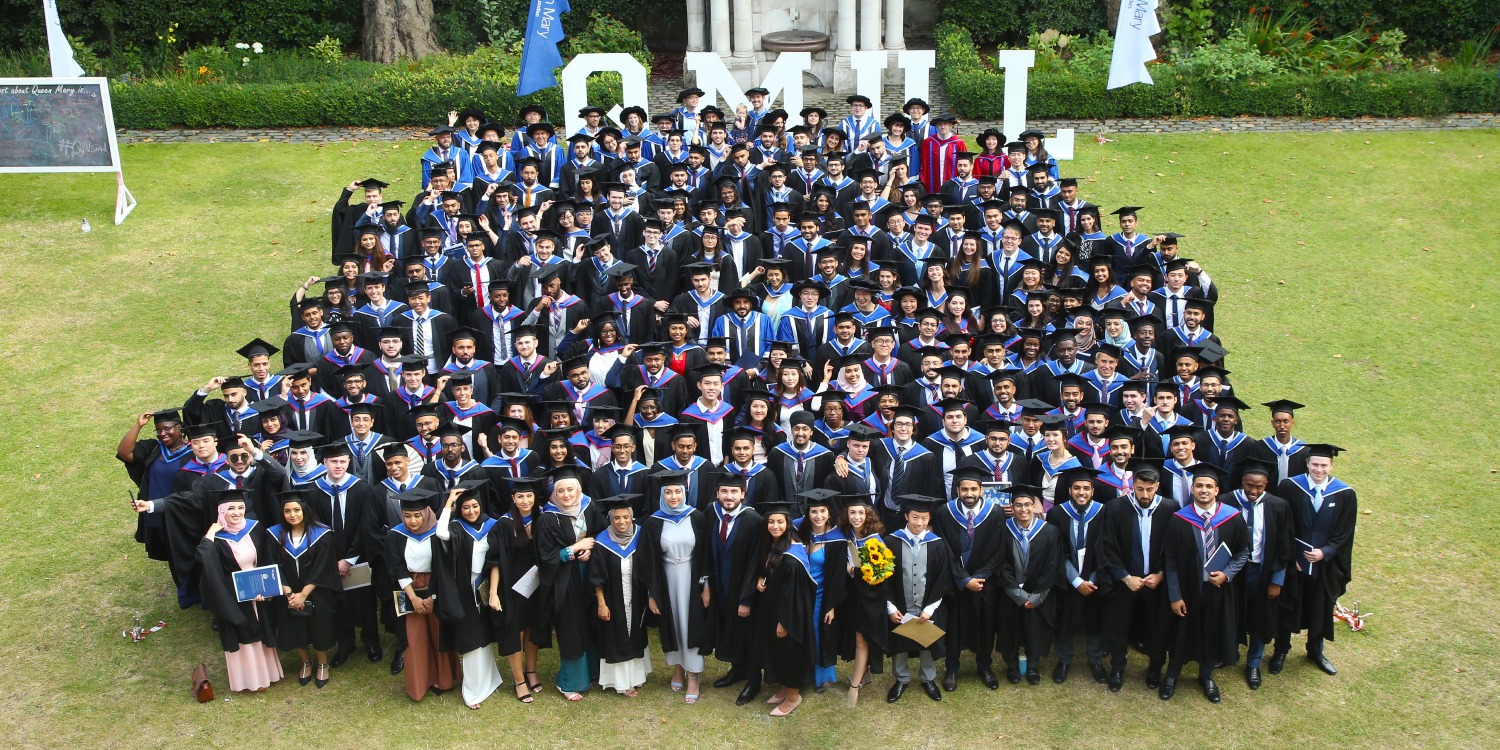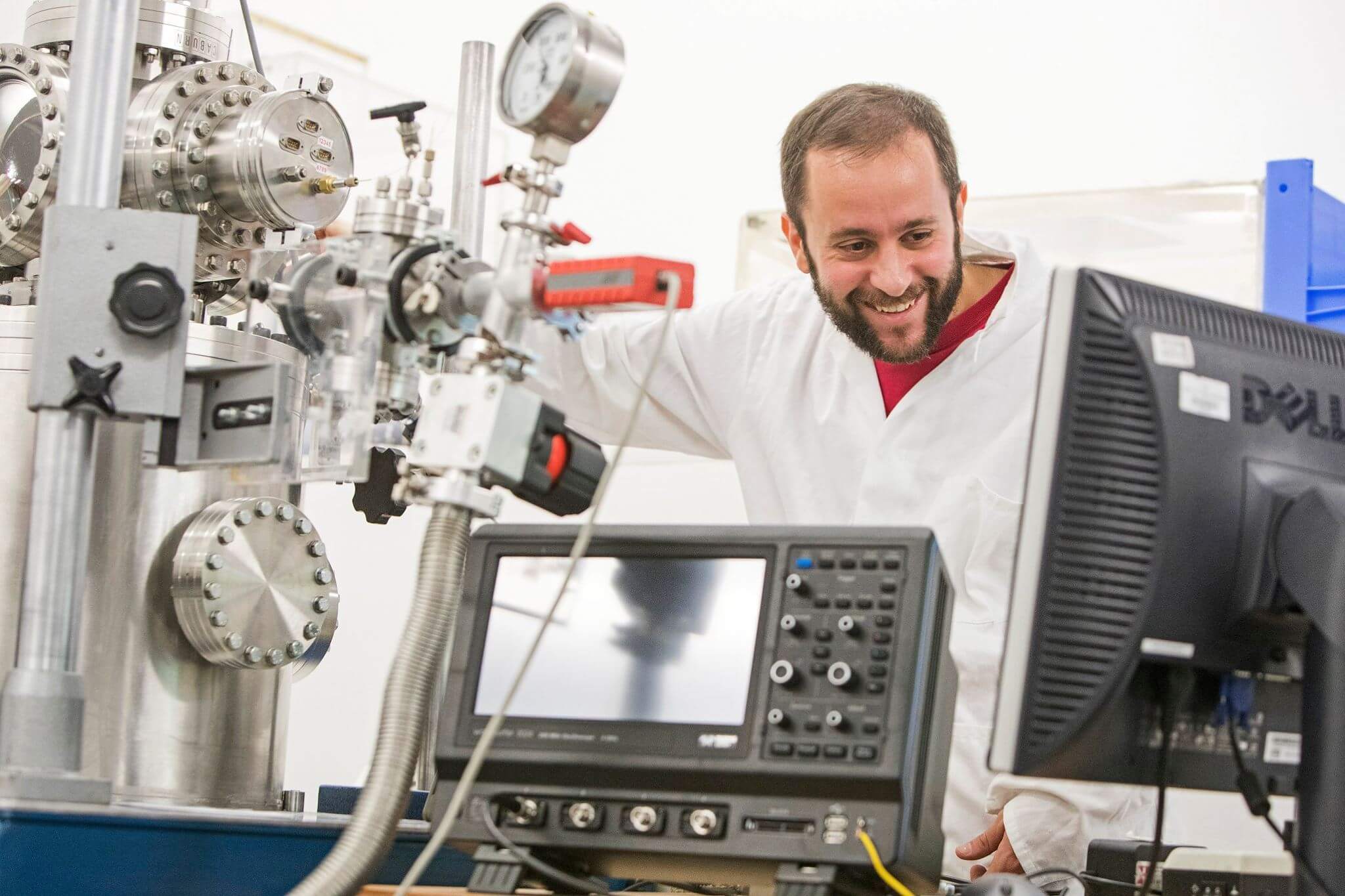Coming from a family of doctors, Mohmad Azim Master grew up with first-hand exposure to developments in the healthcare industry. He was particularly intrigued by the use of robotics technology in the medical sector — and how recent advancements played a vital role in the diagnosis and treatment of major diseases.
“My ultimate goal is to work in the robotics industry, either in research and development or in the practical application of robotics technology,” he says. “I am interested in the fields of medical robotics and automation, as I believe that these areas have the potential to make a significant impact on people’s lives.”
With that, the mechatronics engineering student started searching for a postgraduate programme to support him in his goals. He found it at Queen Mary University of London. Ranked 14th in the UK, Queen Mary’s is a leading research-intensive Russell Group university with nine Nobel Prize winners among our former staff and students.
Their Faculty of Science and Engineering is just as impressive. Hosting five schools, the faculty is amongst the top 10 institutions in the UK for Engineering and Computer Science and Informatics. Ninety-seven percent of science and engineering research outputs were rated internationally excellent and almost half are considered to be world-leading. Its location in London further provides a multitude of experiences and opportunities not afforded anywhere else.

Mohmad is an MSc Advanced Robotics student at Queen Mary University of London. Source: Queen Mary University of London
Mohmad chose the MSc Advanced Robotics. “The programme immediately caught my attention due to its comprehensive curriculum that covered a wide range of topics in robotics, including advanced robotics, medical robotics, cognitive robotics, and clinical sensors,” he shares. “Secondly, it being a one-year course was intriguing as it would provide the opportunity to gain a deep understanding of robotics and its applications in a relatively short amount of time.”
The stellar programmes have attracted and inspired students like Palestinian-born Mohammed N. A. Herzallah. “I aspire to improve the quality of education in the Gaza Strip by upgrading the content of environment and energy modules,” the MSc in Sustainable Energy Systems student says. “I am also eager to play an active role in tackling electricity and environment crises in my home town through working in local renewable energy projects.”
Hands-on learning is a major aspect of programmes at Queen Mary’s. For MSc Advanced Mechanical Engineering student Thelma Tay, this was a deciding factor. “My favourite module is Materials Selection in Design as it shows the impacts the topic has on the world in all industries and the course content is very up-to-date,” she says. “I have participated in projects including redesigning a Siemens train button for COVID-19 adaptability and a simulation of a two-link planar anthropomorphic simulator.”

Students gain hands-on experience in a world-class campus. Source: Queen Mary University of London
Alongside this, students get plenty of support from Queen Mary’s to prepare them for their future careers. A dedicated Careers and Enterprise team is at the heart of this. “The team offers one-on-one appointments, workshops, and events, as well as online resources,” explains Mohmad. “These cover various areas such as writing CVs and cover letters, developing interview skills, networking, and job search strategies. Moreover, students have access to an online platform that offers job listings and other information to find internships, work placements, and graduate roles.”
All of this is made easier by Queen Mary’s open, welcoming community. As the most inclusive Russell Group university, Queen Mary is familiar with opening its doors to students from various backgrounds and cultures. It’s this very aspect that has attracted students from over 170 nationalities to its East London campus.
“In addition to meeting students from various cultural backgrounds through group projects and extracurricular activities, I have also had the opportunity to connect with individuals through different societies on campus,” explains Mohmad. “I have been involved with the Islamic Society, the Arab Society, and the Indian Society, which provided me with a platform to learn about different cultures and to engage with like-minded individuals. This has helped me to develop my interpersonal skills and given me a greater appreciation for the importance of cultural diversity in our globalised world.”

A proud cohort of Queen Mary Graduates Source: Queen Mary of London
Then there’s the campus itself — which is not only optimised for cutting-edge research and learning, but for student well-being too. “The facilities provided here were one of the key factors in my decision,” shares Anjali Bhatt, who pursues the MEng in Aerospace Engineering (now renamed to MSc Advanced Aeronautical and Space Systems). “A lot of focus is on enhancing the student experience and it reflects in the facilities provided to us, be it fitness, community engagement, academic, welfare or career services. So far, I have been part of different engineering groups, campus societies, volunteering teams as well as sports teams.”
Mohmad hopes to work in the fields of medical robotics and automation. Herzallar aims to become a lecturer at his previous university and make an impact in academia. Bhatt intends to become a practising engineer in her field. They’re still in the midst of charting out their paths — but with a QMUL education, they’re guaranteed to find success.
“While the programme was intensive and challenging, the professors and tutors were supportive and knowledgeable, providing us with everything necessary to succeed,” says Mohmad. “It was a fulfilling experience that will stay with me for many years to come.”
Follow the Queen Mary University of London’s Faculty of Science and Engineering on Facebook, Twitter, Instagram, YouTube










